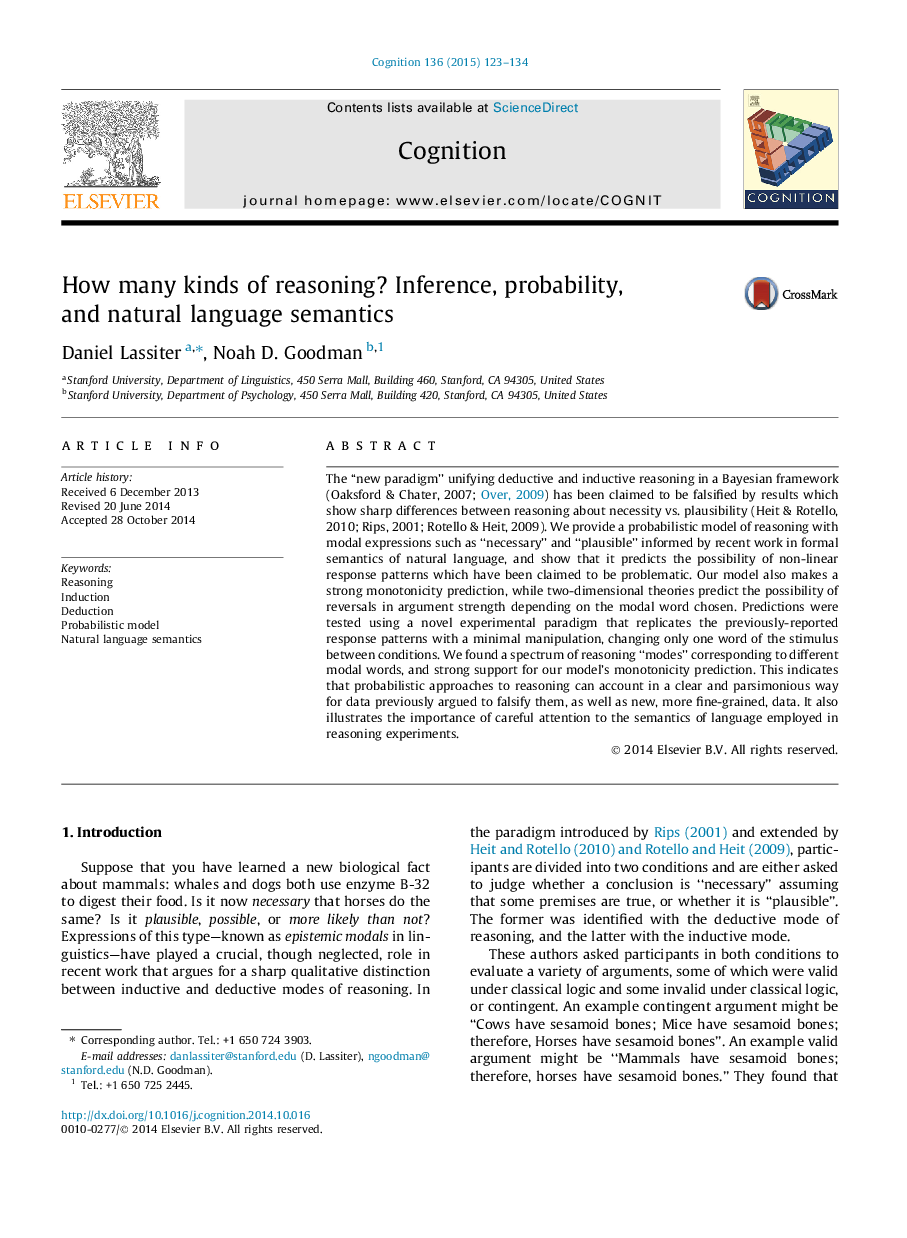| کد مقاله | کد نشریه | سال انتشار | مقاله انگلیسی | نسخه تمام متن |
|---|---|---|---|---|
| 7287330 | 1474131 | 2015 | 12 صفحه PDF | دانلود رایگان |
عنوان انگلیسی مقاله ISI
How many kinds of reasoning? Inference, probability, and natural language semantics
ترجمه فارسی عنوان
چند نوع استدلال؟ استنتاج، احتمال و معانی زبان طبیعی
دانلود مقاله + سفارش ترجمه
دانلود مقاله ISI انگلیسی
رایگان برای ایرانیان
کلمات کلیدی
استدلال القایی، کسر، مدل احتمالی معانی زبان طبیعی،
موضوعات مرتبط
علوم زیستی و بیوفناوری
علم عصب شناسی
علوم اعصاب شناختی
چکیده انگلیسی
The “new paradigm” unifying deductive and inductive reasoning in a Bayesian framework (Oaksford & Chater, 2007; Over, 2009) has been claimed to be falsified by results which show sharp differences between reasoning about necessity vs. plausibility (Heit & Rotello, 2010; Rips, 2001; Rotello & Heit, 2009). We provide a probabilistic model of reasoning with modal expressions such as “necessary” and “plausible” informed by recent work in formal semantics of natural language, and show that it predicts the possibility of non-linear response patterns which have been claimed to be problematic. Our model also makes a strong monotonicity prediction, while two-dimensional theories predict the possibility of reversals in argument strength depending on the modal word chosen. Predictions were tested using a novel experimental paradigm that replicates the previously-reported response patterns with a minimal manipulation, changing only one word of the stimulus between conditions. We found a spectrum of reasoning “modes” corresponding to different modal words, and strong support for our model's monotonicity prediction. This indicates that probabilistic approaches to reasoning can account in a clear and parsimonious way for data previously argued to falsify them, as well as new, more fine-grained, data. It also illustrates the importance of careful attention to the semantics of language employed in reasoning experiments.
ناشر
Database: Elsevier - ScienceDirect (ساینس دایرکت)
Journal: Cognition - Volume 136, March 2015, Pages 123-134
Journal: Cognition - Volume 136, March 2015, Pages 123-134
نویسندگان
Daniel Lassiter, Noah D. Goodman,
